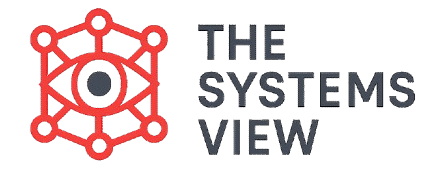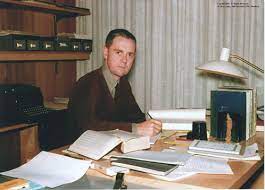If you want to understand the minimum amount of effort required to control a complex situation, you need to understand the work of W. Ross Ashby (1903–1972).
Ashby was a highly logical thinker. He was a British psychiatrist who wanted to understand the universal principles that govern stability and survival in all systems. While other Cybernetics pioneers focused on the nervous system or communication, Ashby focused on the abstract, mathematical laws of system behavior.
His two most famous contributions—the concept of the Homeostat and the Law of Requisite Variety—gave Systems Thinking the tools to analyze why some systems are easy to control and why others spiral into chaos.
The Homeostat: The Ultimate Self-Regulator
Ashby’s first major contribution was the Homeostat. This was not just a theory; it was a machine he built in 1948 to physically demonstrate the principle of ultrastability.
Purpose: The Machine That Learns to Stabilize
The Homeostat was an electronic device designed to maintain its own stable equilibrium. It was made of four interconnected units, each influencing the others. The key feature was its random switching mechanism.
- The Problem: If the machine was thrown out of balance, the current settings would not work to restore stability.
- The Solution: The machine would enter a “learning” state. It would randomly switch its internal connections until, by chance, it found a set of connections that brought the entire system back into a stable state.
- Ultrastability: Ashby called this ability ultrastability. It means the system can survive severe shocks by adapting its internal structure until it finds a way to return to its goal.
This concept proved that self-regulation does not require complex central planning. Stability can emerge from simple, distributed, random trial-and-error within the system itself.
The Law of Requisite Variety
Ashby’s second, and arguably most important, contribution to systems management is the Law of Requisite Variety. This law is essential for anyone attempting to manage, control, or regulate a complex system.
The Law: Only Variety Can Absorb Variety
The Law of Requisite Variety states: “Only variety in the control system can force down the variety in the system being controlled.”
In simple language, this means: A regulator must be as complex as the system it is trying to control.
Real-World Application
- Managing Complexity: If you are managing a simple system, a simple set of rules will work. If you are managing a complex system, like a modern economy, a simple set of rules will always fail.
- The Manager’s Challenge: If a company faces ten different types of business problems (the variety), the management team (the controller) must have at least ten different strategies or skills (the requisite variety) to handle them. If the manager only has three strategies, the seven other problems will quickly spiral out of control.
This law provides a powerful rule for diagnosing failure. When a system is out of control, it is almost always because the controller (the manager, the government, the brain) does not have enough variety to deal with the complexity of the environment.
Essential Concepts for Design
Ashby’s work was central to the goal of Cybernetics: providing a rigorous, mathematical basis for systems control.
Self-Organization
Ashby’s Homeostat and his laws showed how systems can organize themselves without outside intervention. The process of finding a stable state or dealing with complexity is often performed by the system’s own internal dynamics.
This idea of self-organization profoundly influenced later cybernetic thinkers and is now a core part of complexity theory. It suggests that the best way to manage a system is often to design the rules correctly and then let the system handle the details itself.
Important: W. Ross Ashby provided the necessary rigor to Cybernetics. He used machine models and mathematical laws to prove that the ability of any system to survive and achieve control is directly linked to its internal complexity and its capacity for random, self-correcting behavior.
Conclusion
W. Ross Ashby was a pivotal figure in Early Cybernetics who focused on the abstract, mathematical principles of system stability and control. His invention of the Homeostat proved that self-regulation can emerge from simple, random actions. More importantly, his Law of Requisite Variety provides the fundamental rule for management: control requires complexity. His work remains essential for anyone trying to design robust, adaptable systems or manage highly complex environments.



